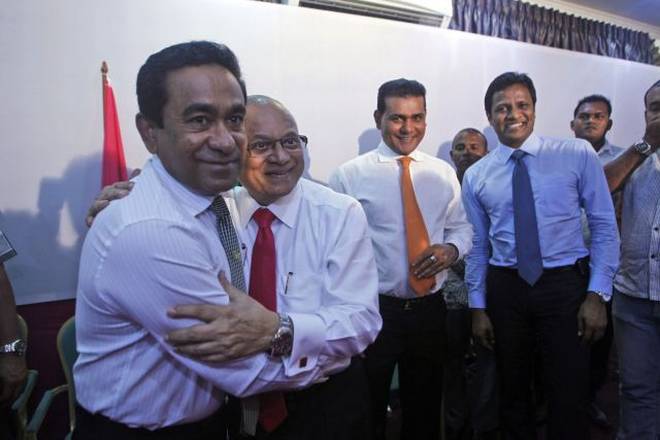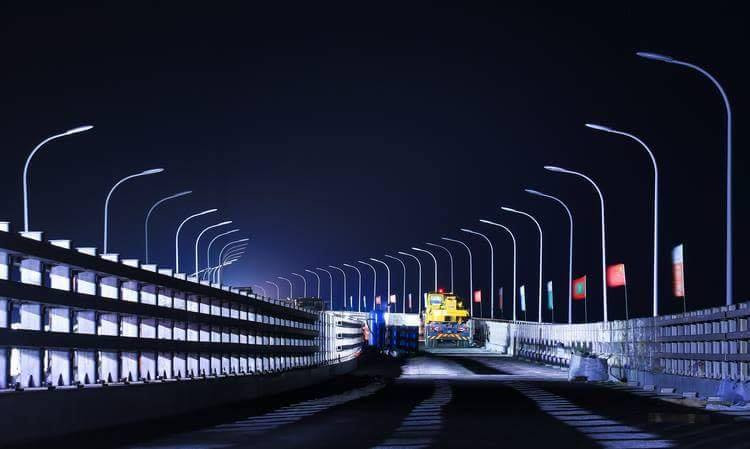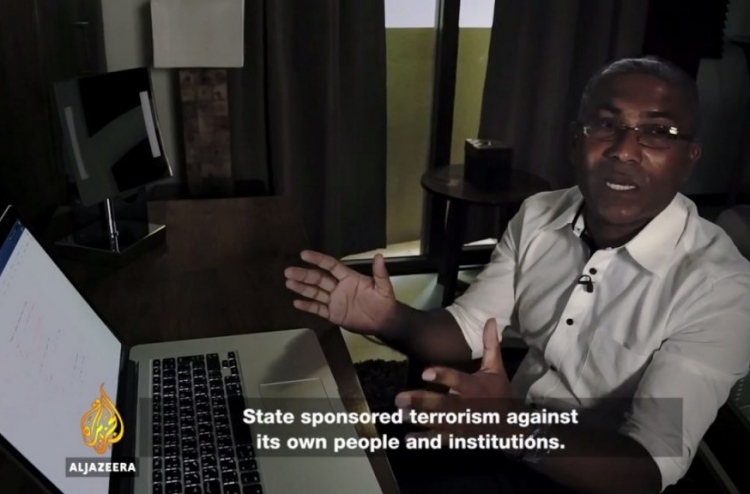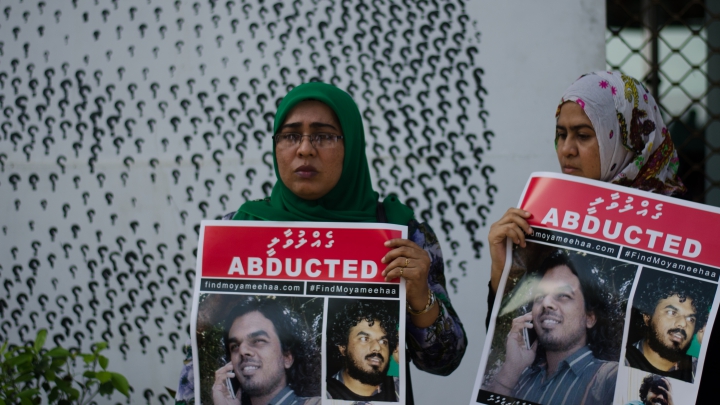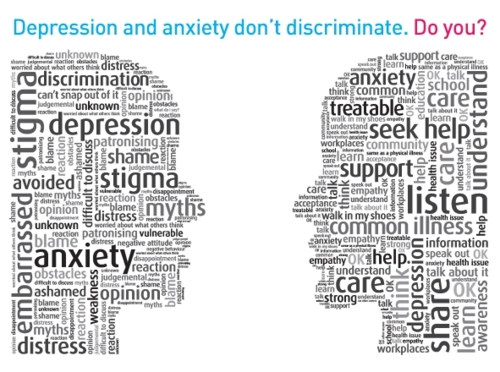
A Nasa graphic showing the global temperature anomalies between 2014 and 2018 – higher than the long term trend is shown in red – Source: BBC
Exploitative developmental policies of the world has seen our planet come to a tipping point, where climate change is no longer an inevitability, but rather the status quo of today. The rise in temperatures is already wreaking havoc on our fragile ecosystems, and it is not a matter of “if”, but rather “when”, in terms of this planet becoming inhospitable, unable to support life.
What does climate change mean in a macro sense? It means mass extinction of our ecosystems as Greta Thunberg has rightly pointed out, which is already happening. The world’s coral reefs, from the Great Barrier Reef off Australia to the Seychelles off East Africa, are in grave danger of dying out completely in 30 years time. This means that the life supporting sustenance that we get from our oceans could be obliterated sooner, rather than later.

Photo Credit: NOAA 2015B; UNDERWATER EARTH 2015
What are small communities like us, who rely on fisheries as a source of food and income to do when this happens? What are countries like the Maldives, who rely on the beauty of our oceans to do when the basic fundamental ecosystems that gives the ocean its magnificence, die out and leave only death and ugliness behind? What do low lying island communities like us do to combat the rise in sea levels, which would in all likelihood obliterate an entire country and its people?
Climate Resilience – Can We Overcome the Inevitable?
Resilience is defined as the capacity to overcome difficulties, a sense of toughness. We humans have always been resilient; which is how we have survived the many catastrophes and the multitude of wars that have been waged on Earth and reached this point.
Sometimes I tend to think that “resilience” in conjunction with climate change is a term designed to give us humans false hope and a sense of comfort to show that we are in “control” of our destiny, to show us that we can still make that needed difference and set the world on a different course than towards its preordained destruction.
But all my fanciful notions aside, climate mitigation and adaptation is not just about infrastructure and energy efficiency; it is also about thinking beyond today for the survival of tomorrow. The science is simple; without an abundant food supply, we all die a painful death.
I do not believe that we as a community are thinking beyond the survival and economics of today, to secure our future for tomorrow, especially in terms of food security in its most basic sense.
We are a country that is highly dependent on imported goods and produce for our food supply. The minute the ships stop sailing, the seas become too rough to carry goods, air travel is no longer feasible, oil supplies are destroyed in the clash of egos between the world titans, what do fragile economies like ourselves do? We perish long before our time.
Islamic View – the End of Times
From an Islamic point of view, where we are moving towards is the predestined end of life here on Earth, as has been promised in the many verses of the Quran. From the ongoing war in Syria since the beginnings of the Arab Spring in 2011, to the worsening conflicts in the Middle East, aided by President Trump’s half-witted foreign policies, there is an inevitability to what is happening, if you are a believer of Islam and its scriptures.
In the coming of the Dajjal for instance, there are traditions of the Prophet Muhammad PBUH, that points towards him being able to get crops to start producing an abundance of yield, cows grazing and giving birth, and wealth multiplying in copious amounts wherever he deems it so. But for those who do not believe in his powers, times become extremely hard, hunger is constant, and the only thing they have left to do is supplication to God.
Even if we remove the Islamic literature from the context of what is happening today, it is pretty clear that with climate change, the weather patterns are changing. Droughts and too much rainfall both produce the same results; you end up with no crops to feed the 7.53 billion people on Earth. Furthermore, with the world’s freshwater supplies dwindling, it is a foregone conclusion that the world would go to war and stumble into chaos under the circumstances.
So the question that arises is simple; what happens when a “savior” emerges from within that turmoil, travels to every community on Earth and shows to people that he is the salvation that we have all been waiting for? There is a reason why the coming of Dajjal is said to be the greatest trial for mankind, one which every Prophet that was sent to Earth has warned his people about, with specific clarity forthcoming on the matter from Prophet Muhammad PBUH.
Islamic literature talks about Dajjal in many ways. How during the times of the Prophet PBUH, a Jewish man named Ibn Sayyad roused suspicions of the Sahabah (companions of the Prophet PBUH) and the Prophet PBUH himself, whether Ibn Sayyad could in fact be Dajjal.
According to historical narrations, Ibn Sayyad is said to have disappeared during the Ridda wars that broke out in the times of the Caliphate of Abu Bakr. Ibn Sayyad was an alleged claimant of Prophethood at the time of the Prophet Muhammad PBUH, and Umar bin Khattab and even some scholars of today speculate that he might be the Ad-Dajjal who would later come in this world as the False Messiah.
There is a narration of the Prophet PBUH, on two men who were traveling, and rough seas having brought them to an island where they met a man in a monastery, whose hands were tied to his neck, with his knees shackled. The shackled man asked them questions on whether the date palms of Baysan (a Palestinian village that was depopulated by Israeli military forces in 1940s) were producing dates, whether the lake of Tiberias still had water in it (this is a fresh water lake in Israel whose water levels have been decreasing), and whether the illiterate Prophet had emerged, calling the ignorant to the path of the righteous.
As this was during the Prophet PBUH’s time, all the questions were answered in the affirmative to which the man replied that he was Dajjal, and that he would emerge when the date palms were producing no more, the lake had dried out, and there is great famine on Earth – all of which seems quite possible at this point in time.
Climate Science and Rising Temperatures
Keeping aspects of faith aside, the science points towards the same in terms of the collapse of the world order. As the temperatures rise, our body’s finite abilities to cope with heat break down. The power systems keeping our devices charged and our lives in comfort, gets overloaded through failures in the system or overheating, leaving people struggling in buildings designed for power efficiency, locked in a vacuum of heat that would be nothing short of ruthless.
The movies that we deem as fanciful, where anarchy breaks out, is not a far fetched reality under the circumstances. Without power, traffic signals go out, the gas stations stop pumping, and literally everything we depend on stops working because every single convenience of modern life is energy dependent. When fires breakout (as is happening in the Amazon jungle and Indonesia) the catastrophe multiplies; people struggle to breath, putting added strain on emergency services, as has been witnessed by Indonesian NGOs working on the ground.
The toll of heat on mental health is also an interesting one. When temperatures rise, suicide rates can go up at a pace similar to the impact of economic recessions. Some aspects of higher cognition are impaired. Higher temperatures have been shown to lead to aggressive behaviour, due to its impact on neurotransmitters of the brain, bringing down serotonin levels.
What can Maldives as a Community Do?
The outlook on our futures is bleak at this point. What we as a community can do to combat and reverse this change is quite minute in the larger scale of things – big polluters in the industry need to cease operations, which are in fact tied to jobs and livelihoods of millions of people, cessation of which could collapse entire economies. The wealth inequality of nations adds onto this, the hoarders of wealth putting us all at risk.
Currently, Maldives is undergoing a period of increased catch of fish from the oceans, so much so that fishermen are complaining of the inability to sell their catch to the local companies that buy them in bulk for processing and exports.
The question that runs through my mind is however, different from economic gains of the present. How many of us have thought beyond surviving the cutthroat economics of today to think about our future? How many of us take the lessons from Islamic literature on Prophet Yoosuf’s time perhaps, when the world saw seven years of abundant produce, followed by seven years of extreme hardship during which time none of the crops yielded enough food for survival?
Connecting the two would probably be met by a lot of ridicule by some, especially the religion skeptics, but there is reason enough to think along those lines, if you can connect where the science is leading to, to the lessons to be learnt from stories of the prophets that Allah SWT has revealed in the Quran.
While I do believe that Maldives must do our bit to work towards climate resilience, the science points to what President Nasheed talked about in terms of Maldivians becoming climate refugees. We laughed then perhaps, because in our minds, that was just too fanciful to be true. But anyone who has a minuscule knowledge of science would no longer be laughing at this point.
The cryosphere which is in decline as research from IPCC has pointed out, shows that rising sea levels could destroy communities housing billions of people in the near future, and that low lying islands and coastal communities would be the most vulnerable. This is a reality we have to face up to and prepare for, sooner than later.
But as countries of the world increasingly become nationalistic in their political sentiments and borders are strengthened in a bid to curb the tide of refugees coming unto their shores, this is in fact a sign that, be it consciously or unconsciously, the world is preparing for its catastrophic end in the coming times.
Short of technology that could practically lift our islands to higher ground, I do not see a way in which low lying islands can fight the rising waters of the sea levels as predicted through science. Once again, Greta Thunberg said it right;
“They also rely on my generation sucking hundreds of billions of tons of YOUR CO2 out of the air with technologies that barely exist.”
Sadly, it is not just her generation that will suffer.
The suffering has already begun.
From this point forward, it can only worsen.
